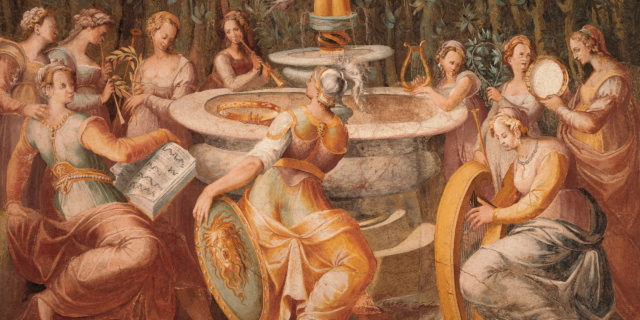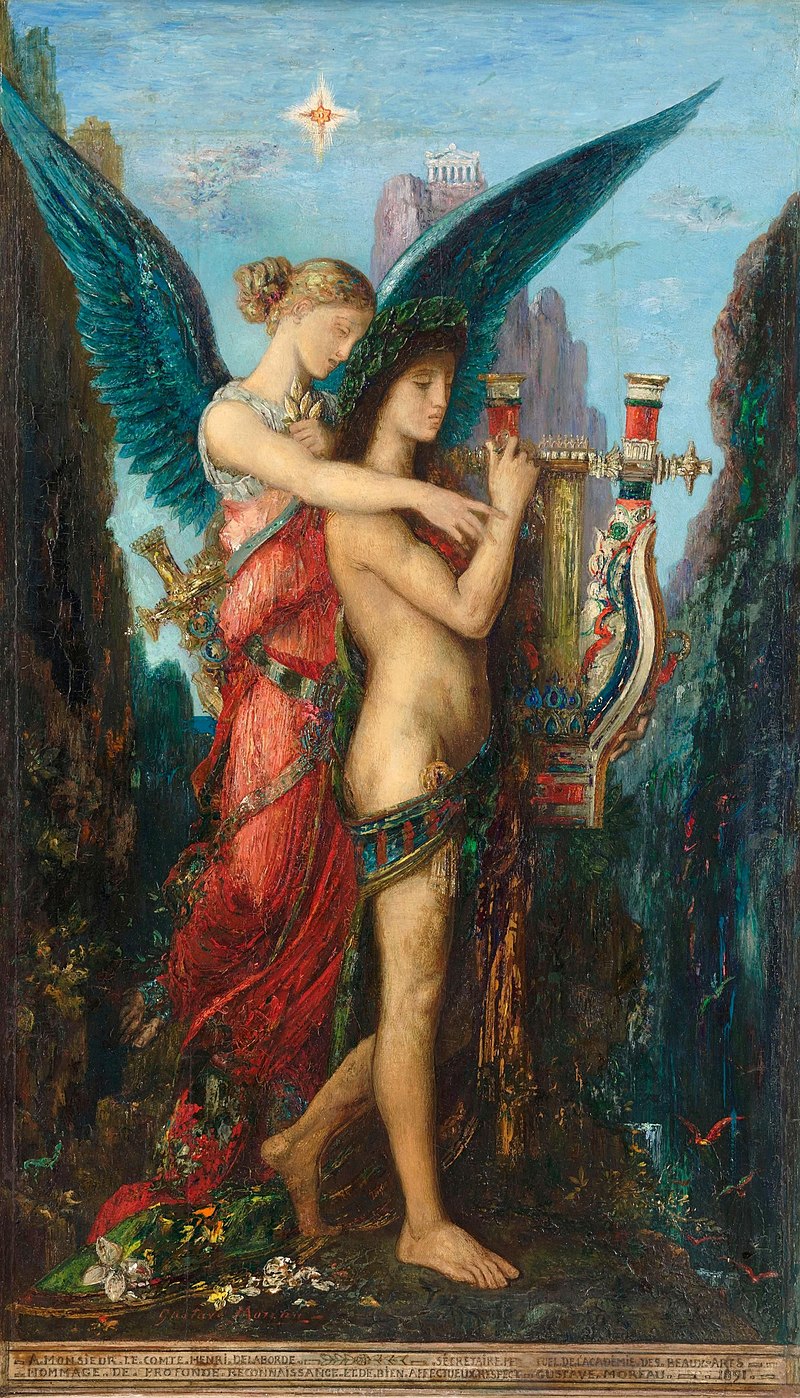Hesiod and the Muse by Gustave Moreau
“I will begin with the Muses and Apollo and Zeus. For it is through the Muses and Apollo that there are singers upon the earth and players upon the lyre; but kings are from Zeus.
Happy is he whom the Muses love: sweet flows speech from his lips.
Hail, children of Zeus! Give honor to my song! And now I will remember you and another song also.”
-Homeric Hymn to the Muses and Apollo
“O! for a muse of fire, that would ascend the brightest heaven of invention.”
-William Shakespeare
The muse is associated with creativity, the arts, imagination, and the grace of elusive inspiration.
Artists and creative types yearn for “the muse” to come, for that feeling of creative flow within their chosen expression, the feeling of transcendence. The best remedy for this yearning was wisely stated by a gnostic teacher: “When inspiration comes, she finds me working.”
The muse is not an outside person or an outside entity. The muse of inspiration is within our own hearts at all times, and it is always possible to connect into that creative flow of being and expression.*
In ancient Greek mythology the muses were nine goddesses, each with a unique skill related to art and science. There are differing origin stories, but the most prominent is from Hesiod’s Theogony, that the muses were the daughters of Zeus and Mnemosyne, goddess of memory.

In many classical works of literature including the Odyssey, the Aeneid, Dante’s Inferno, and in some of Shakespeare’s work, the muses are invoked to provide help and inspiration.
The muses were traditionally associated with springs, in accordance to one one of their lesser-known origin stories as nymphs, or water spirits, and shrines to the muses were dedicated to springs and fountains.

Names and Attributes of the Nine Muses
Clio: history
Euterpe: music and dialectic
Thalia: comedy and theater
Melpomene: tragedy and theater
Terpsichore: dance and the harp
Erato: love poetry
Polymnia: sacred poetry or hymns
Ourania: astronomy and astrology
Calliope: epic poetry
*Naming this blog Gnostic Muse expresses something about the inspiration that guides my work. Once that name was chosen the overall purpose and aesthetic of this blog became clear.

